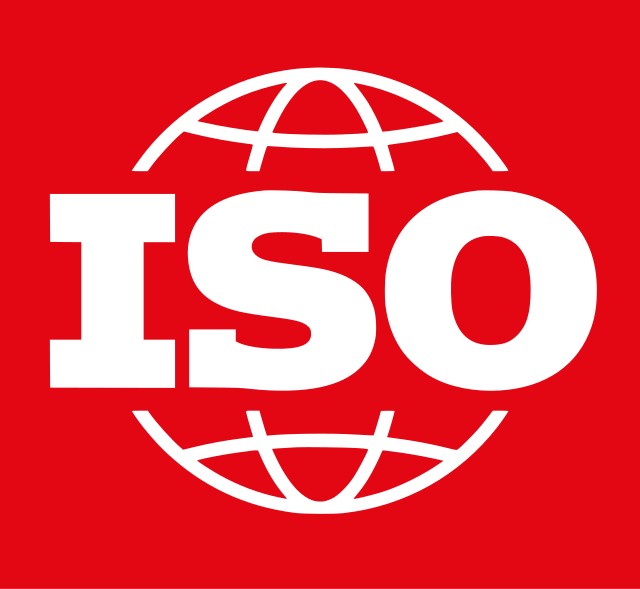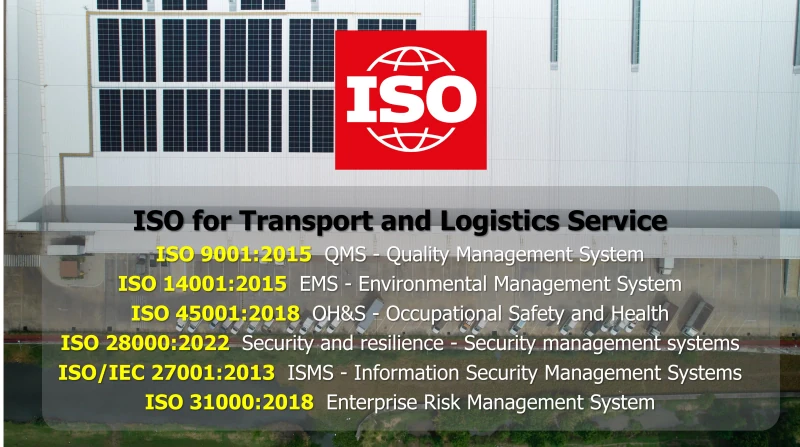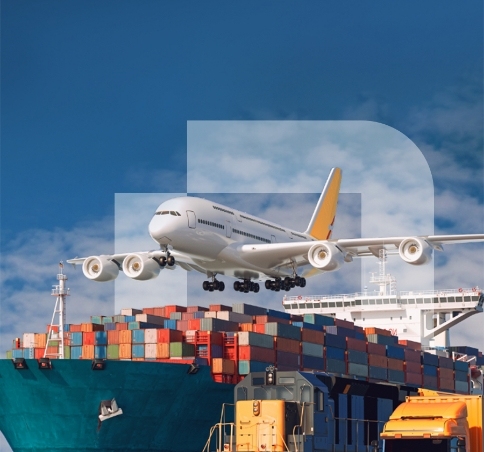News and Articles
ISO Standards for Transport and Logistics Management


The International Organization for Standardization (ISO), founded in 1947, acts as a global regulatory body overseeing standards worldwide. Despite being an intergovernmental institution, it operates independently of any national government with over a hundred member countries and aims to create international standards to improve efficiency and promote economic alignment, benefiting consumers worldwide.
In the transportation and logistics sector, ISO standards serve as fundamental guides for various processes, including planning, operations, and organizational control. These standards encompass the management of data and financial transactions essential for the efficient movement, storage, consolidation, and distribution of raw materials, work-in-progress items, goods, and services. By ensuring operational efficiency and effectiveness, ISO standards bolster customer confidence in the organization's commitment to maintaining high standards and quality across its operations.
Examples of ISO standards related to transportation and logistics include:
ISO 9001:2015 - Quality Management System (QMS)
ISO 9001 can be applied to organizations of various sizes and types in any business and service sector. It focuses on meeting customer expectations and enhancing customer satisfaction, which is crucial for logistics companies.
ISO 14001:2015 - Environmental Management System (EMS)
ISO 14001 emphasizes environmental management systems (EMS), particularly important for transportation and logistics companies aiming to reduce environmental impacts, waste, improve resource efficiency, and ensure legal compliance.
ISO 45001:2018 - Occupational Health and Safety Management System (OH&S)
ISO 45001 replaces the OHSAS 18001 standard, helping transportation and logistics organizations ensure safe and healthy workplaces, prevent work-related injuries and illnesses, and continuously improve occupational health and safety.
ISO 28000:2022 – Security and resilience — Security management systems
ISO 28000 focuses on ensuring the security and resilience of supply chains, meeting customer requirements and legal regulations. It assesses the environment and considers adequate measures to manage security risks effectively, crucial for logistics companies to deliver products accurately and timely.
ISO/IEC 27001:2013 - Information Security Management Systems (ISMS)
This standard helps organizations manage information security to maintain confidentiality, integrity, completeness, and availability systematically. It establishes information risk management processes, impacting customer and stakeholder confidence, especially critical for transportation and logistics, heavily reliant on information systems for operations and communication.
ISO 31000:2018 - Enterprise Risk Management System
Although not certifiable, ISO 31000 provides guidance on risk management for various organizations, including transportation and logistics, helping them identify and manage risks effectively.
For transportation and logistics companies, ISO certification not only signifies adherence to industry best practices but also cultivates confidence in market competition, enhances operational efficiency, fosters customer trust, and ensures compliance with legal regulations.
Transportation and logistics entrepreneurs interested in ISO certification can find more details at https://www.iso.org/home.html









